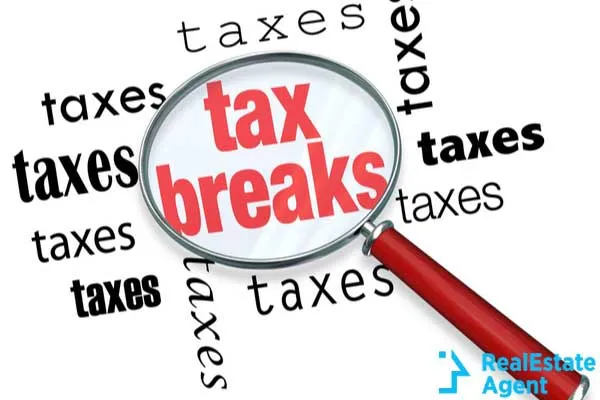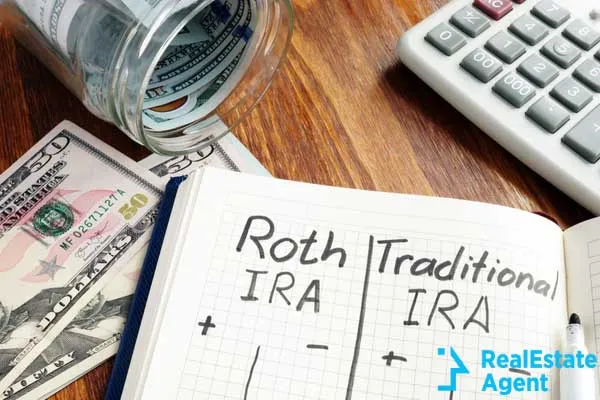
Are you planning on buying your first home? Why wouldn’t you? After all, it’s part of the American dream. However, first-time homebuyers may find it hard to purchase a home if they don’t have all the information on hand. When you start thinking about buying your first home, there are several things that you need to look into as they can make it easier and, most importantly, more affordable. Taxes are essential, and understanding tax breaks can lighten your financial burden significantly.
Your down payment can affect your taxes, as can many other factors involved in real estate transactions. The key is to know which tax break benefits you the most, which can be applied for you, and how they can work together to incentivize first-time homebuyers to cross the threshold towards becoming a homeowner. This article will showcase each tax break that first-time homebuyers can benefit from and how they work so that anyone interested in becoming a homeowner can take advantage of them. Buying a home in 2021 isn’t easy, and it doesn’t matter if you’re a millennial or a boomer. The housing market is expensive, and tax breaks are there to be used. If you can apply to any of them, don’t think twice.
Disclaimer: While we will list some of the options available for first home buyers to get tax breaks, if you are interested in the topic we suggest you contact a financial advisor/accountant. The following are just options that may or may not fit your situation and should not be considered financial advice.
Penalty-free IRA payouts

First-time homebuyers can take out up to $10,000 from traditional and Roth IRAs without the 10% penalty for withdrawals before the age of 59 and a half to use as a down payment, saving you a ton in penalties. Important to note, however, that this exception does not work with 401(k) plans.
To qualify for this IRA exception, the homebuyer must use the money withdrawn to buy or build a first home within 120 days of the withdrawal time. That home can be for you, your spouse, family, kids, grandkids, and even your parents. Once used, the $10,000 individual cap can not be used again. Still, you can also get money from family members who do the same thing. Your spouse, parent, child, or grandchild can add another $10,000 from their IRA accounts or a combination of the same for a total down payment of $20,000 for a down payment. You can use up to 50% of your 401(k) to purchase a home, but there is a cap at $50,000. The interest on that 401(k) loan isn’t tax deductible like a regular mortgage loan.
Before you jump on this type of tax break, do understand that while the 10% penalty is waived in most IRA down payment pay-outs, the money will still be taxed (unless attributed to nondeductible contributions). Meaning that 40% or even more of the $10,000 individual cap can go to tax collectors. Keep that in mind before you choose this option.
First-Time Homebuyer Tax Credit of 2008
There are more tax benefits to buying a home. Some are now defunct, but the buyers are still benefiting. There was a first-time homebuyer tax credit in 2008 when many people bought homes for the first time; if you utilized the first-time homebuyer credit as of 2008, you had to repay this credit in increments on your tax bill of an additional $500 a year, for 15 years. However, there are exceptions based on the value of the home and the kind of credit provided.
For first-time homebuyers who bought their homes in 2009 and 2010 who wanted to stay in their homes for a longer-term, the credit does not have to be repaid. However, they must have used the home as a principal residence for thirty-six months after they bought it. If they moved out before that time, they are responsible for the taxes the year they leave home. This is called an accelerated repayment. However, if the home is sold at a loss, the tax credit is not repaid.
First-Time Homebuyer Act of 2021

The $15,000 First-Time Homebuyer Act of 2021 is still a bill as of August 30, 2021, but if it got passed into law, those eligible would receive a tax credit automatically. The program would be applied for any home purchased after January 1, 2021, if the home-buyer meets the following criteria:
- First-time homebuyer;
- Did not own a home over the last 36 months;
- Doesn’t exceed income limitations for the area in which they want to purchase the home;
- Is buying a primary residence;
- Minimum age of 18 or married to an 18-year-old;
- Home bought from a non-relative.
Property Tax
First-time homebuyers are allowed to claim federal and state deductions for property taxes. As these fall under what the IRS calls “real estate taxes”, they can be deducted. Furthermore, most states apply federal tax laws to property taxes allowing them to be deducted as well. The property tax deduction can be claimed through Form 1040, Schedule A when you decide to itemize your taxes.
Mortgage Interest

Most people get the biggest benefits from deducting their mortgage interest. Up to $1 million of debt that resulted from building, acquiring, or improving a primary residence could be deducted for the tax year before 2018. Since then, the limit changed to a maximum of $750,000 for married couples who file jointly or $375,000 for those who file them separately.
The exception to this rule is any mortgage taken out before October 13, 1987. As grandfather debt, all interest is deductible. Homes purchased between October 13, 1987, and December 16, 2017, are eligible for the $1 million limits. Homes that were under binding contract before December 17, 2017, to be sold before January 1, 2018, and purchased before April 1, 2018, are eligible for the $1 million limits.
For a loan to allow this type of deduction, it must be used to build, purchase or improve a home, and must use the home as collateral for the loan.
Mortgage Insurance Premiums
Homebuyers who don’t manage to save up at least 20% for their downpayment often must pay premiums for mortgage insurers. This premium is a fee that works to protect the lender if the borrower defaults on their mortgage. If the mortgage was issued in 2007 or after, homebuyers could deduct these premiums from their taxes. The program was extended throughout 2021, so if you qualify for this deduction, you can deduct it on Schedule A of Form 40.
Mortgage Points
Homebuyers can also write off both the origination and discount points on their tax returns. 1% of the principal loan amount is equivalent to 1 point. Mortgage points are seen as prepaid interest. They can be deducted all at once in some cases or spread out throughout the life of the mortgage. First-time homebuyers can take all the deductions at one time. Second homes and refinances usually require the points to be spread out.
Home Improvements

Many people who purchase a home also invest in home improvements. Seeing as mortgage interest deductions specify that home improvements qualify for tax cuts, the same goes for other home improvements. However, homebuyers can only benefit from this tax break when they sell the property. Still, if possible, save receipts and other records you might get during any home improvement projects as, while most home-sale profits are tax-free, the IRS can demand part of the resale profit.
When you make home improvements, chances are that these will increase the value of your home. That value will be added to the cost basis of your home, the purchase price you paid. Keeping track of this basis will save your potential profit from the IRS, at least in part.
Energy Credits
Installing energy-efficient windows, storm doors, insulation, efficient air conditioning, and heating systems can also generate a credit of up to $500, with a maximum of $200 being credited to windows. This credit will likely expire on Dec 31, 2021.
Renewable energy sources like fuel cells, solar, geothermal heat pumps, and small wind turbine systems installed in your home also qualify for a tax credit. For that, the Renewable Energy Efficiency Property Credit was introduced, and it allows you to deduct as much as 30% of the equipment cost and installation for systems placed before December 31, 2019. This credit was extended and will apply for systems placed until December 31, 2023. The renewable energy tax credit will allow future deductions of up to 26% for systems placed between December 31, 2019, and January 1, 2023, and 22% for systems installed since then, up until January 1, 2024.
Conclusion
Have a talk with your real estate agent about potential tax credits when buying or selling a home. You could save more than you realize by taking advantage of specific loopholes in tax and retirement or real estate investment holdings to help finance your home with a larger down payment. Above you will find the most used tax breaks that can be deducted, and renovations that fall in line with energy savings can also improve the home value while generating their own tax credits. Also, feel free to read our other blog explaining the top most favorable States for property taxes.
















Have a question or comment?
We're here to help.